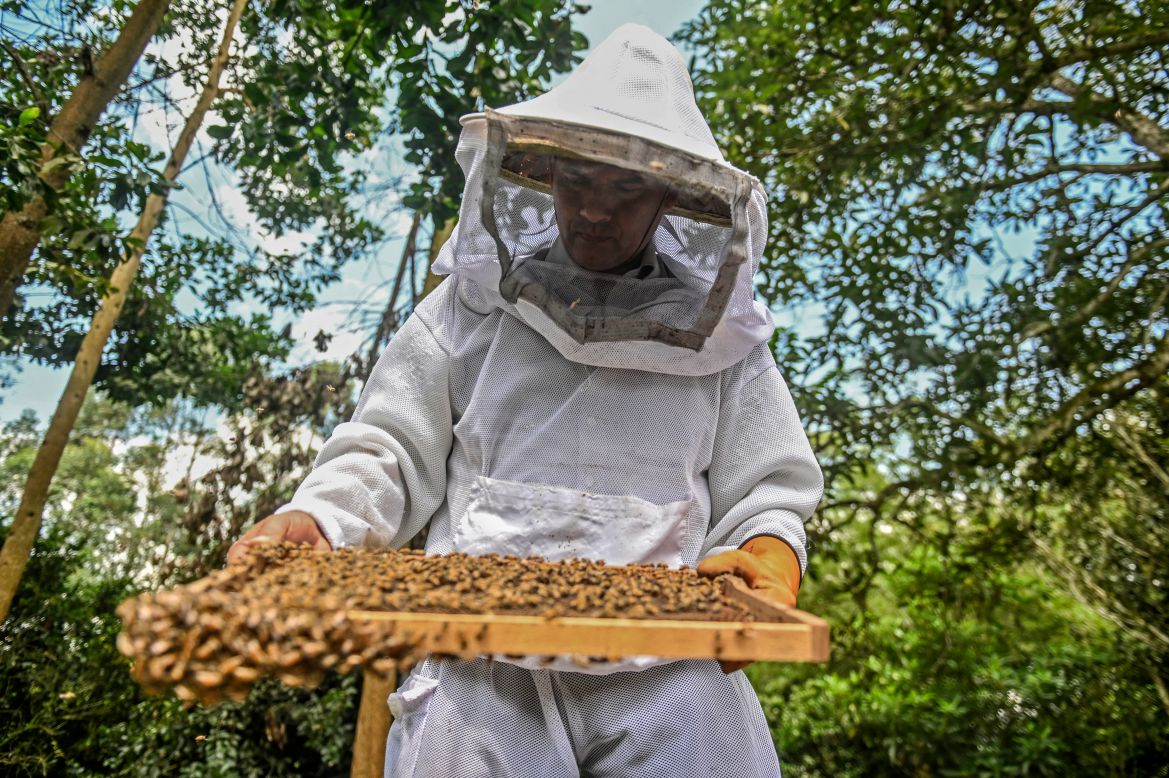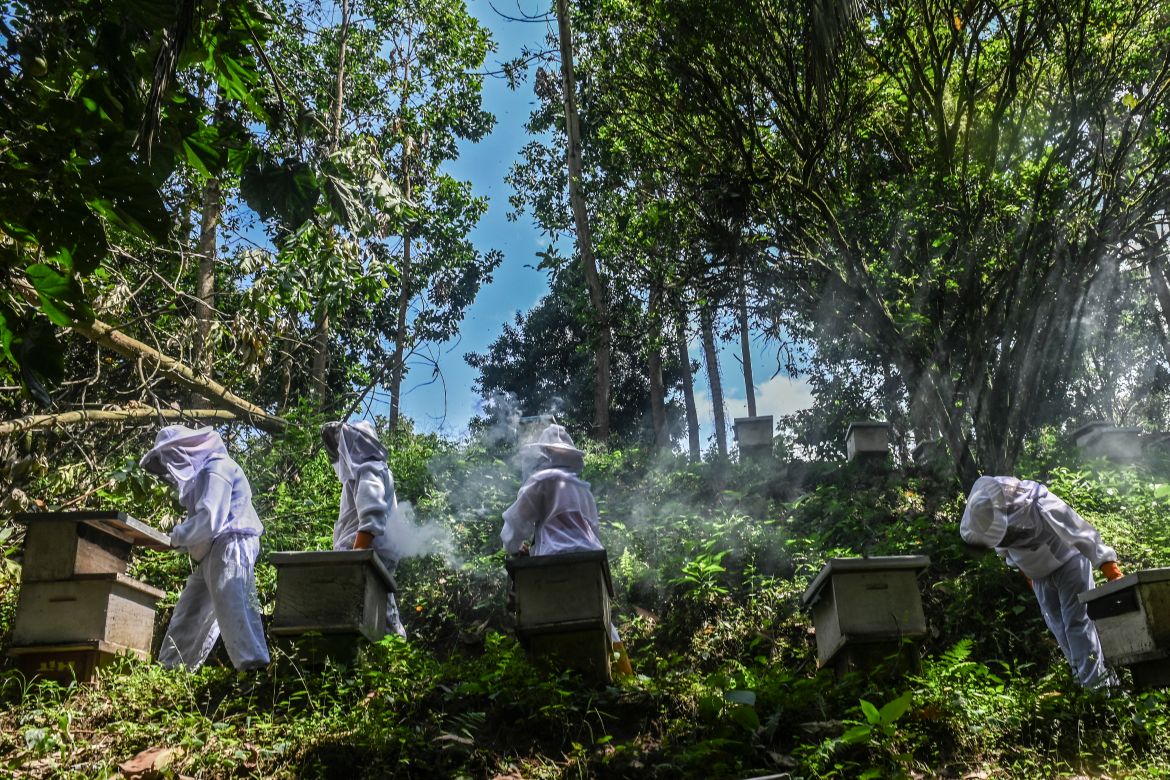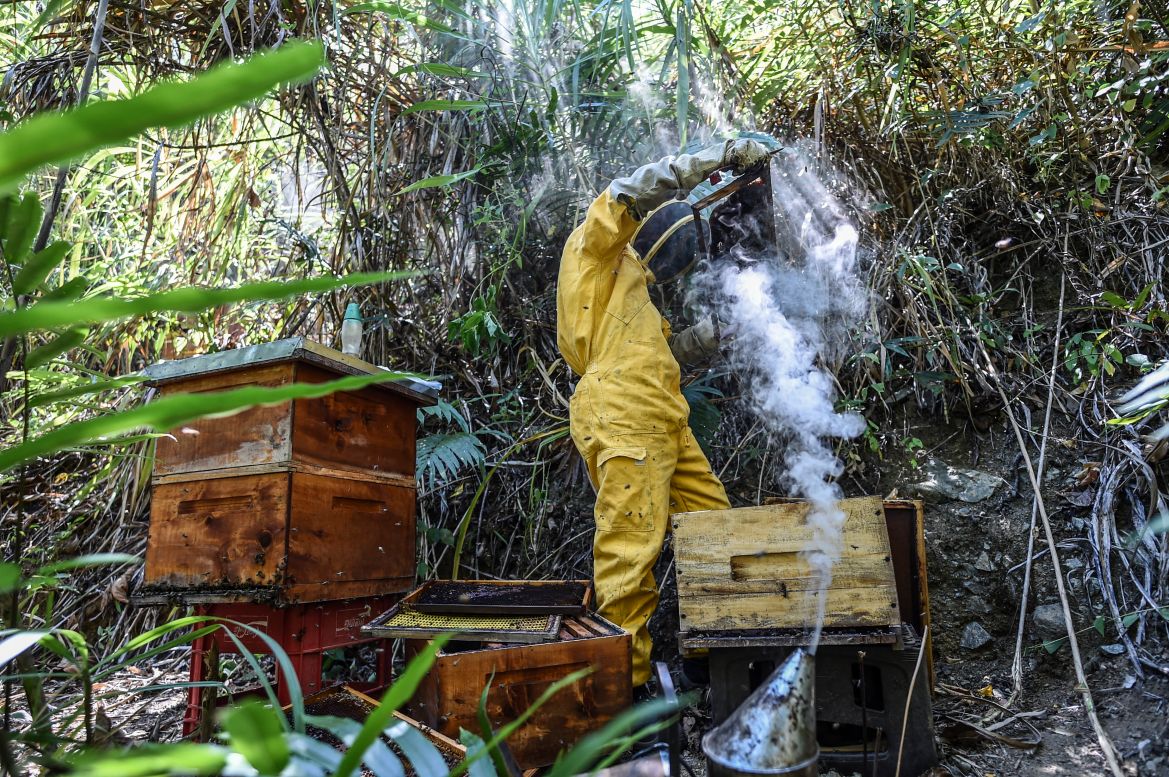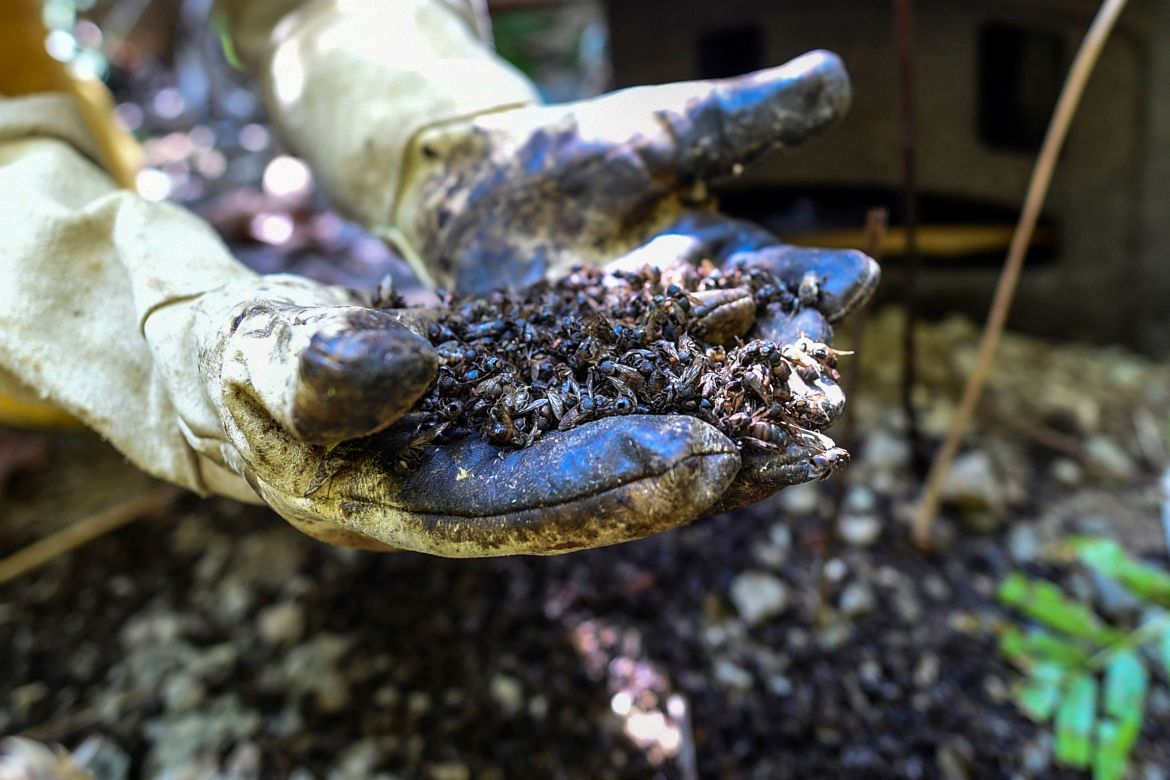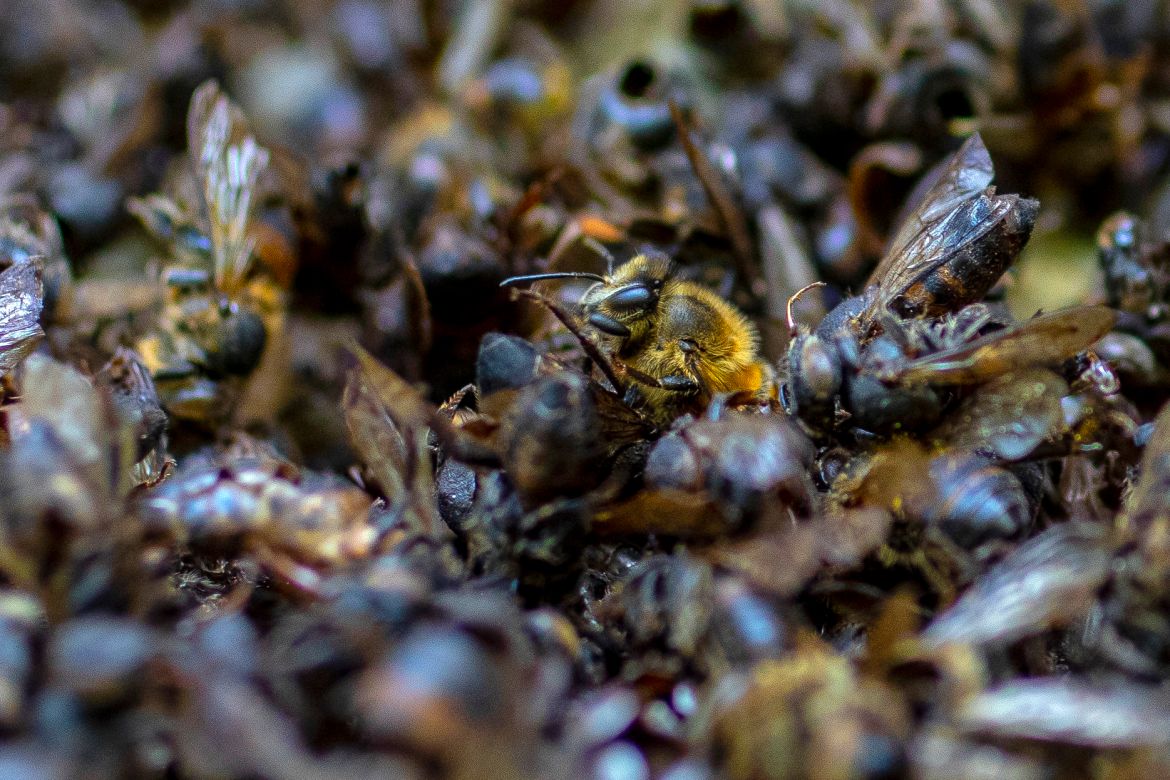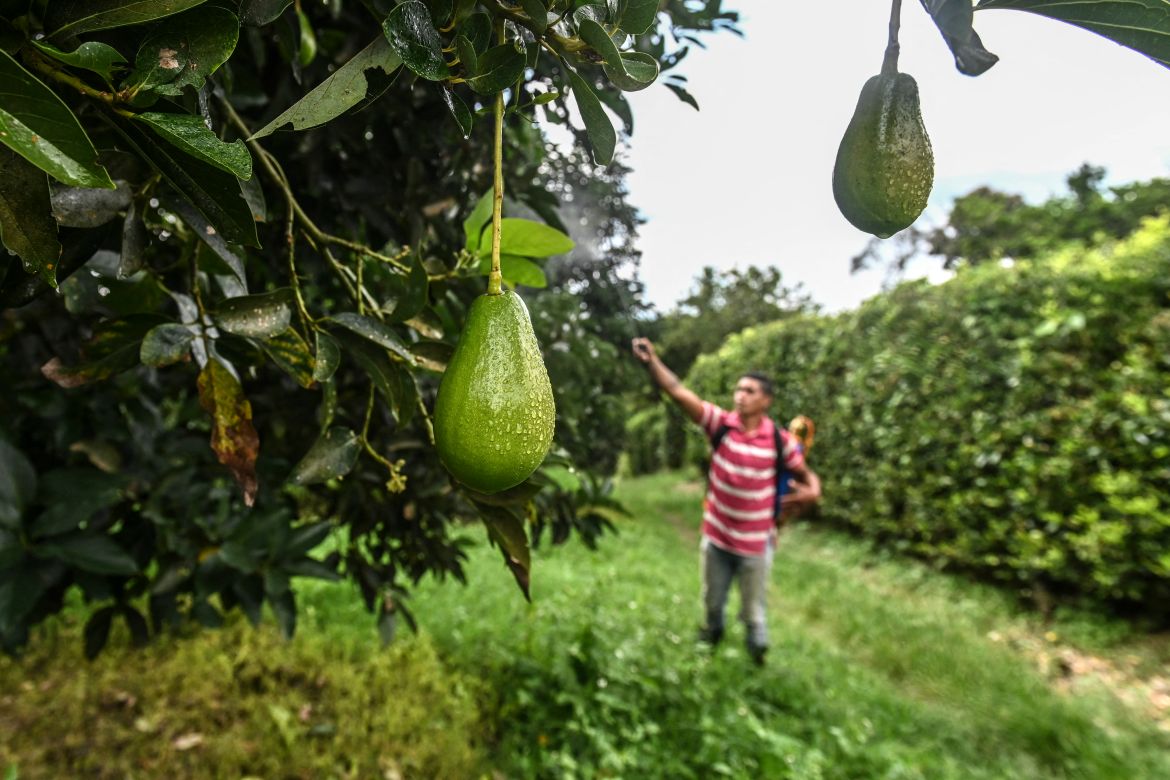In Pictures
In Pictures: Is avocado boom to blame for bee deaths in Colombia?
Apiarists in Colombia suspect pesticides used in commercial avocado and citrus farming is killing the bees.
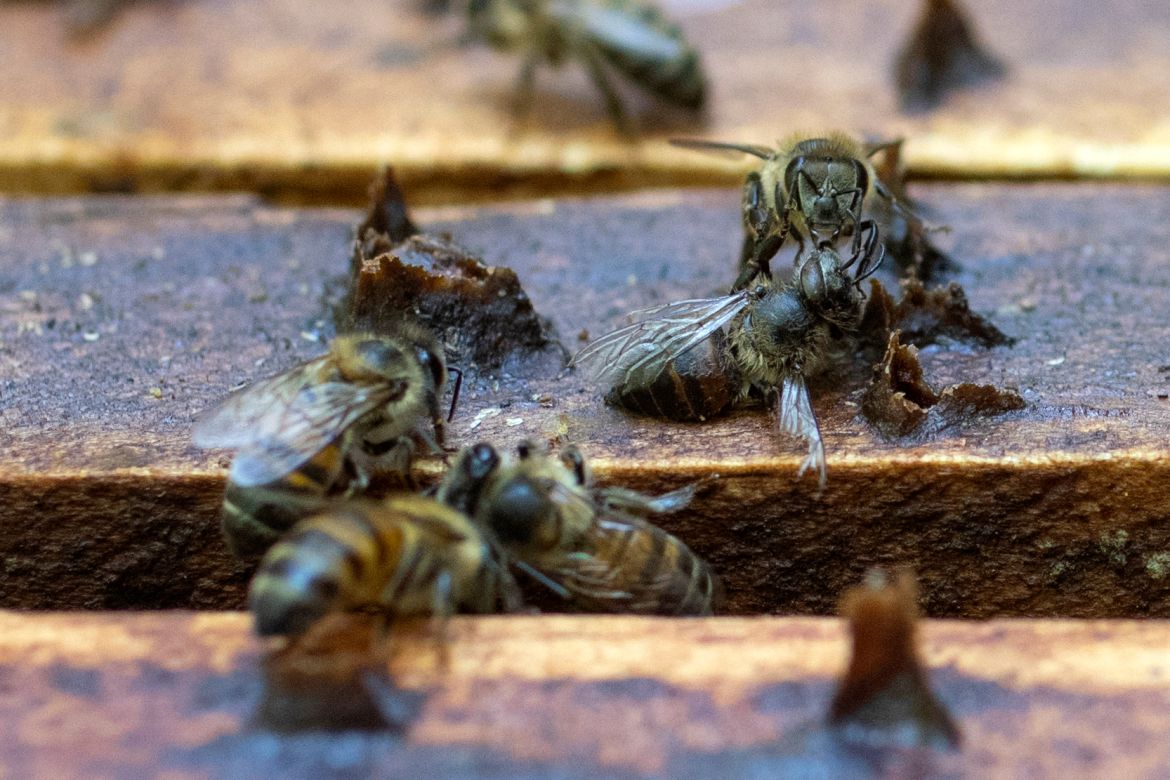
For the second time in two years, Gildardo Urrego is scooping up piles of dead bees after an invisible evil invaded his hives in northwest Colombia, wreaking havoc among his swarms.
Urrego has no proof, but he suspects the culprit is pesticides that have been fuelling a commercial avocado and citrus boom in the country.
Hundreds of hives have been killed off in Colombia in recent years, and some investigations have pointed to fipronil, an insecticide banned for use on crops in Europe and restricted in the United States and China.
It is used to control all manner of insects, including ants and ticks, and has been blamed for several bee massacres around the world.
Urrego’s apiary in Colombia’s Antioquia Department produces honey flavoured with pollen from nearby passion fruit orchards. In 2019, he lost 10 of his 19 hives.
This time, he said, one-third of his 12 hives were wiped out – a loss of some 160,000 of the industrious little pollinators.
“There is a theory that, yes, this is due to poisoning, there are some crops around here that perhaps have not managed their agrochemicals well and so this area was affected,” he told AFP.
In recent years, bees in North America, Europe, Russia, South America and elsewhere have started dying off from “colony collapse disorder”, a mysterious scourge blamed partly on pesticides along with mites, viruses and fungi.
The UN warns that nearly half of insect pollinators, particularly bees and butterflies, risk global extinction.
